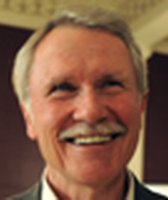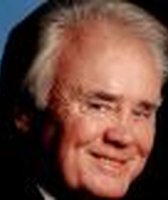Stand up for the facts!
Our only agenda is to publish the truth so you can be an informed participant in democracy.
We need your help.
I would like to contribute

On PolitiFact’s ninth birthday, fact-checking is bigger and more important than ever.
Nine years ago today, the St. Petersburg Times launched an unusual effort to help voters find the truth in politics.
There had been some excellent fact-checking before we came along — the pioneers at FactCheck.org launched in 2003 — but PolitiFact was different. We used Truth-O-Meter ratings to summarize our conclusions from True to Pants on Fire. And we presented our work as structured journalism, which enabled us to compile and tally our findings in powerful new ways. Readers could see all of a candidate’s False ratings, for example, and everyone we checked had a report card that showed how many True, False, etc. ratings they had received.
When we launched on Aug. 22, 2007, there were just a handful of us on the team: myself, Angie Drobnic Holan, Scott Montgomery and a couple of reporters from Congressional Quarterly who contributed occasional fact-checks. We focused exclusively on the 2008 presidential race.
Since then, PolitiFact has become the largest fact-checking venture in history. We’ve examined more than 12,000 statements by politicians, pundits and political groups and we have 21 PolitiFact sites that include 18 states (PolitiFact North Carolina, Florida, Virginia, among others), PunditFact and the PolitiFact Global News Service, our partnership with Africa Check that checks claims on health and development. The St. Petersburg Times is now the Tampa Bay Times.
PolitiFact has become so established in the national discourse that it was mentioned in yesterday’s New York Times crossword puzzle (82 Down - "PolitiFact finding").
Fact-checking has never been more vital. This year’s campaign has been filled with so many falsehoods that many writers have been referring to it as "the post-factual campaign." That in turn has led some people to believe that fact-checking isn’t worthwhile, because some politicians keep lying, even after they’re caught.
(As our Poynter colleague Alexios Mantzarlis has pointed out, the gripes about a "post-factual" campaign aren’t new. People used that phrase to describe the 2008 campaign.)
I think these critics are missing the point. The mission of fact-checking has always been to inform, not to change behavior. And by that measurement, fact-checking this year is a smashing success. There is more fact-checking than ever — more than 100 sites around the world, according to the latest tally by the Duke Reporters’ Lab. That’s up more than 60 percent in the last year.
Indeed, the fact that we know the politicians are using so many falsehoods is actually proof that fact-checking is working. In debates and interviews, the candidates are being questioned about the claims the fact-checkers have found were untrue.
On PolitiFact’s ninth birthday, fact-checking is bigger and more important than ever.
Our Sources
See fact-checks.


















































